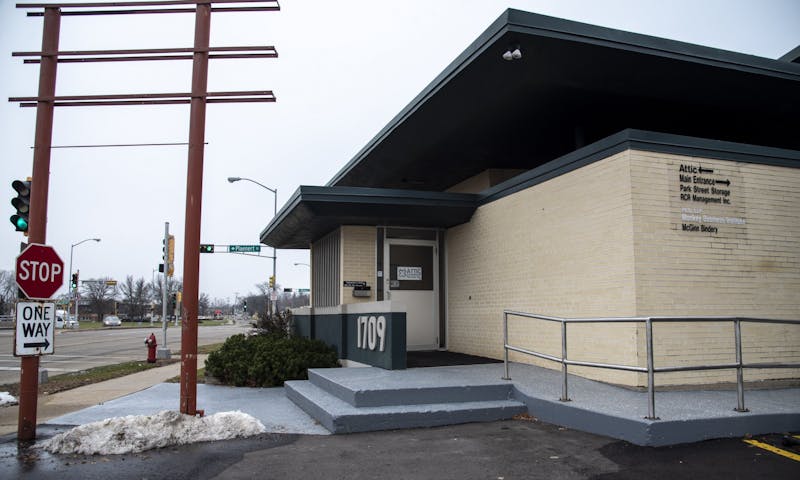
Despite laws protecting the mentally ill, Wisconsin lacks funding for programs that provide an alternative to incarceration.
Image By: Will Cioci
Despite laws protecting the mentally ill, Wisconsin lacks funding for programs that provide an alternative to incarceration.
Image By: Will CiociWhen most people hear the word ‘prisoner,’ the first thing that comes to mind is the crime they committed, not the state of their mental health at the time.
However, in reality, a large portion of inmates both in Wisconsin and across the country may have committed crimes or been incarcerated not because they are vicious people, but because they suffer from mental health issues.
The state of Wisconsin is facing a significant problem in their prisons — over half of the inmates in many facilities have a mental health diagnosis, but treatment resources and funding are highly limited.
Compared to other states, Wisconsin has fairly strong laws and programs to protect criminals and other individuals who may commit crimes due to mental health issues, said Lisa Dailey, the director of advocacy at the Treatment Advocacy Center — a national non-profit organization dedicated to reducing barriers to treatment for individuals with mental illnesses.
Thus the main problem is not a lack of these laws and programs but a lack of funding and application of these laws to keep the mentally ill out of prison.
In the Wisconsin Secure Program Facility, a men's maximum security prison in Boscobel, Wisconsin, 51 percent of inmates have a mental health diagnosis. In the Milwaukee Women’s Correctional Facility, it’s even higher — 58 percent.
“If an individual engages in conduct that could be criminal due to untreated mental illness, that is a failure of the civil treatment system to intervene in a timely fashion,” Dailey said. “The criminal justice system should identify these cases and divert as many as possible, especially those arrested for non-violent offenses, into treatment.”
Programs aid arrested individuals of all ages
Wisconsin has a number of programs for individuals who were arrested because of crimes they committed due to mental health issues, or simply because law enforcement wanted them off the streets, as is the case for some alcoholics, drug addicts or mentally ill homeless people.
ATTIC Correctional Services is one of the primary institutions that offers care for these individuals and offenders. They provide a number of services, including halfway housing for recently released prisoners, day report centers, transitional living programs and clinical services.
Another center, Wraparound Milwaukee, provides programs specifically for children with emotional, behavioral and mental disorders. It offers an alternative to juvenile detention for kids who may need care, but aren’t hardened criminals.
Kids do not necessarily have to be in detention or on an order to attend Wraparound, clarified Kevin Gilboy, the superintendent of youth detention for Milwaukee County.
“It’s a very good program for kids who have mental health issues,” Gilboy said. “It’s very critical that kids that do get their mental health addressed, which will help eliminate their time here in detention or being brought to detention.”
Lincoln Hills and Cooper Lake Schools are two state juvenile detention facilities, for boys and girls respectively, that have drawn recent attention following multiple lawsuits for alleged abuse, neglect and use of tactics such as isolation and excessive force.
Gilboy believes these programs have the potential to be valuable for youth, but to be done correctly they require more funding.
Gov. Tony Evers signed a bill to push their closure from January 2021 to July 2021 with the hope delaying will allow time to allocate more funding for improving the programs rather than canceling them.
“It’s great to have these ideas but costs money to provide those services, Gilboy said. “The Governor has ideas. But he also has a Republican house and senate, so you have issues there. And when it comes to taxpayer money, it’s hard to get anything through.”
Recognizing and treating trauma
Prisons see inmates with a wide range of mental illnesses, including those classified as severe like major depressive disorder, bipolar disorder, psychotic disorder and other disorders that significantly affect an inmate’s ability to function, said Gretchen Schuldt, the executive director of the Wisconsin Justice Initiative.
And it’s not just mental illnesses at work — many inmates are also highly impacted by trauma both in their lives before prison and during incarceration.
“So many people that go into prison are traumatized by their life before prison, traumatized by the crimes they have committed, and people are traumatized by prison itself,” Schuldt said. “There has to be recognition and treatment for trauma.”
Treating this trauma can be complicated, sometimes due to unwillingness from patients to get help. When individuals with mental health issues enter non-secure facilities or programs, such as outpatient treatment programs, they often enter unwillingly or run from them.
Gilboy added that a lack of treatment resources exacerbates the issue.
“There’s a lot of wasted time, waiting in detention to get treated and then when you finally do they run and then they’re back to getting locked up. It’s a vicious cycle,” he said.
The failure to implement alternatives to incarceration for individuals who may need to be placed in a secure, psychiatric treatment facility rather than prison leaves few options for rehabilitation rather than punishment.
“There’s not enough beds in the community, there’s not enough institutional beds. The default is if you want to keep them safe or alive — even in the best motive — the default is jail or prison,” Schuldt said.
Despite state laws to protect mentally ill inmates, the lack of follow through and funding can create a system where prisons become a place to put people with mental health issues.
“If you’re involved [in the criminal justice system] even in the most superficial manner for five minutes, you know there’s a problem with prisons becoming the depository for people with mental health issues,” Schuldt said.